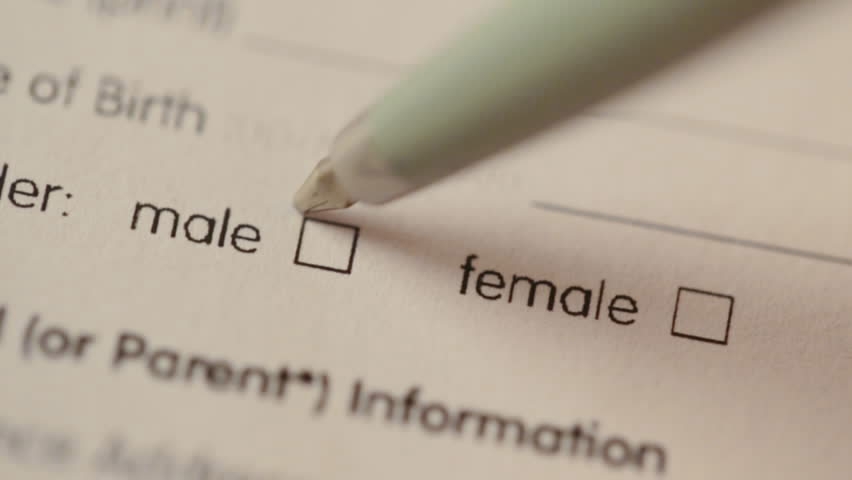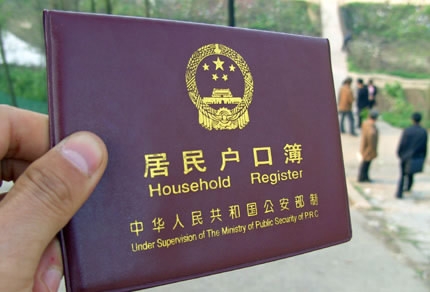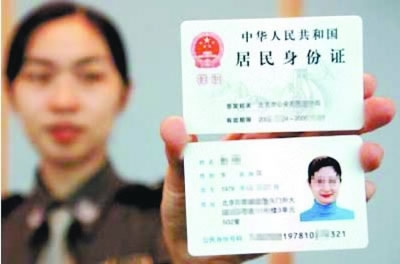
China
18:17, 21-Aug-2017
Gender marker error leaves Chinese woman in limbo for 7 years
CGTN's Nadim Diab

A cis-gendered Chinese woman has spent seven years to correct a gender marker mistake on her official documents and issue an ID card, local media reported on Monday.
The case highlights the entrenchment of bureaucracy in some departments despite the government’s efforts to simplify administrative procedures and sheds a light on the confusion resulting from vague gender change policies.
Kong Lingqun, a young mother from a village on the outskirts of Hefei in east China’s Anhui Province, succeeded earlier this month in removing the hurdles that had long prevented her from obtaining an ID card, registering her marriage and issuing a household register for her daughter, now aged 5.
From mistake to misery
The woman’s woes started in 2010 when she wanted to obtain an identity card. What seemed like a routine procedure at the Hefei Public Security Bureau turned into a protracted battle to set the record straight after she discovered that her gender was mistakenly marked male on her household register.
Noticing the glaring mistake, public servants suggested she present the original version of her identification documents, which could be retrieved from the local police station.

Kong Lingqun's household register identified the young mother as male. /China Daily Photo
Kong Lingqun's household register identified the young mother as male. /China Daily Photo
But another unfortunate surprise was about to disrupt her efforts. The police station in Longgang village could not find the materials Kong was asking for.
"They said my file could not be found, and gave me a copy certifying that the file has been lost," Kong told local media.
In a desperate attempt to provide plausible evidence of her gender, the woman gathered school reports and pictures of her as a child – but that did little to convince the employees at the public security bureau to take action.
"I offered them childhood photographs, what more did they want?”
Medical proof
In 2014, civil servants asked her to get a notarized note from a designated hospital.
By then, Kong was married and a mother – but the sweet events had turned sour as she lacked any form of identification to legalize her affairs.
She could not issue a marriage certificate, and was unable to apply for a birth certificate for her daughter due to the unresolved glitch on her household registration record.

Kong was unable to issue an ID card due to the gender marker error on her household register.
Kong was unable to issue an ID card due to the gender marker error on her household register.
The problems that have affected Kong, who was dismissed from her job in a factory because she lacked a national identity card, risked passing down to her child. Without a birth record, her daughter can neither be admitted to school nor obtain an identity card.
With her one-year-old baby in her arms, Kong visited a hospital in the hope she would get evidence proving her gender, but her request caught the doctors by surprise and was rejected.
“The doctors were shocked, you have a child, what is there to prove?” she said.
Another attempt three months later also turned futile.
Despite the series of requests, Kong’s household registration problem was resolved in August and an ID card is reportedly being processed. However, it has not been clear how the case came to a happy ending.
Similar inconvenience for transsexuals
Kong’s predicament is not unheard for, especially among the country’s transgender people who seek to change their gender markers and names on identity cards.

Jin Xin is a Chinese ballerina and a talk show host. She was one of the first few transgender women to be officially recognized as a woman by the Chinese government. /Photo via Jin Xing Dance Theatre
Jin Xin is a Chinese ballerina and a talk show host. She was one of the first few transgender women to be officially recognized as a woman by the Chinese government. /Photo via Jin Xing Dance Theatre
"The police said I needed a statement from a hospital proving my sex reassignment before they could change my ID. But when I went to a hospital, because I had had the operation abroad no one was willing to sign a statement,” Minda Chen, a transsexual woman, told Global Times recalling her experience.
“The hospital said it could be illegal and that there were no Ministry of Health regulations that allowed them to issue a statement like that. Neither the police nor the hospital wanted to accept the responsibility and I had no idea what I could do.”
An employee at the Hefei Public Security Bureau told the Beijing Youth Daily that “in theory, officially changing gender requires some sort of a formal proof,” admitting that the policies related to gender reassignment procedures are not easily understood.
The civil servant also admitted that fear of future accountability could be behind the reluctance of some of his colleagues to facilitate similar applications.
China’s fight against bureaucracy, among other practices including corruption and formalism, began in 2012. Despite the reform policies achieving success in streamlining administrative approvals, especially in the business and financial sectors, more measures are still needed to tick all the right boxes in order to avoid mishaps like in the case of Kong.

SITEMAP
Copyright © 2018 CGTN. Beijing ICP prepared NO.16065310-3
Copyright © 2018 CGTN. Beijing ICP prepared NO.16065310-3